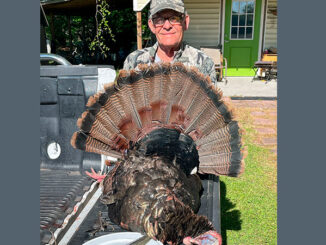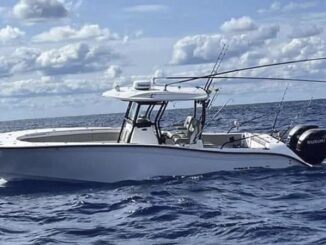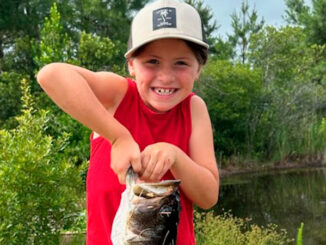
Central Southern Management Area impacted
A year-round recreational striped bass season closure will go into effect at 12:01 a.m. on Friday, March 29, 2019, in all waters of the Central Southern Management Area where a closure does not already exist. The Cape Fear River and its tributaries are already under a harvest moratorium and are not impacted by this change.
N.C. Division of Marine Fisheries Director Steve Murphey and N.C. Wildlife Resources Commission Executive Director Gordon Myers issued consistent proclamations today that result in a year-round closure in all joint fishing waters of the Central Southern Management Area. Further, in light of protective measures already implemented through proclamations issued by Director Murphey that prohibit striped bass harvest and limit commercial gear, the Wildlife Resources Commission proclamation also closed the striped bass season in all remaining inland waters within the Central Southern Management Area. A year-round season closure is already in effect for all coastal waters of the Central Southern Management Area.
The Central Southern Management Area encompasses all waters from just south of Oregon Inlet to the South Carolina line. The major waterbodies and their tributaries impacted include, but are not limited to:
the Pamlico and Core sounds,
the Tar River downstream of Rocky Mount Mills Dam,
the Pamlico River,
the Pungo River,
the Neuse River downstream of Falls Lake Dam,
the White Oak River, and
the New River.
Some areas to remain open to striped bass harvest
The closure does not impact striped bass fishing in the Atlantic Ocean, in the Albemarle Sound Management Area, the Roanoke River Management Area, or the Pee Dee River and tributaries downstream of Blewett Falls Dam.
A map of the closed areas can be found here.
The regulatory changes finalize implementation of Supplement A to Amendment 1 to the N. C. Estuarine Striped Bass Fishery Management Plan, which was adopted by the Marine Fisheries Commission in February. The approved supplement contained a no possession measure for striped bass for both commercial and recreational fisheries in coastal and joint waters of the Central Southern Management Area.
The two agencies are currently working on Amendment 2 to the North Carolina Estuarine Striped Bass Fishery Management Plan, as research has shown that the striped bass populations in the Central Southern Management Area are not self-sustaining. These temporary management measures will ensure the protection of naturally-spawned year classes of striped bass until the amendment is completed.



